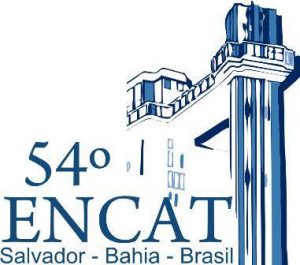Source: Noblat Blog - São Paulo / SP - BLOG - 06/12/2010
The Brazilian tax administration has become an international reference in terms of the use of information and communication technologies. This fact stems from a process that started in the sixties, with the adoption of several pioneering initiatives, such as the creation of Serpro, in 1964, and the use of the banking network to collect taxes.
It continues, more strongly, in the nineties, in which intensive use of the web was made in the preparation and transmission of statements and sophisticated inspection systems were implemented. By the way, the implementation of the electronic invoice and SPED (Public System of Digital Bookkeeping) is underway, which represent notable steps with a view to establishing the Brazilian leadership in the matter.
In order to illustrate the level reached by the Brazilian tax administration, let us make a comparison with its counterpart in the United States. This year alone, the country's tax authorities managed to receive, by electronic means, 70% of the income tax returns of individuals. In Brazil, for over 10 years more than 95% of individuals have transmitted their income tax returns over the internet. In the field of legal entities, this goal is fully universal.
Paradoxically, data from Doing Business 2010 (a survey conducted annually by the World Bank, in the scope of 183 countries, with the objective of assessing the ease of doing business), gives Brazil the 127th position, in general terms.
Specifically in the fiscal field, the results are unfortunate: 2.600 hours are spent annually to fulfill tax obligations, in contrast to an average of 384,7 h in Latin American and Caribbean countries, and 199,3 h in OECD countries; the positions reached regarding the opening and closing of companies are very modest (128th and 132nd, respectively).
I try to explore, in this article, some hypotheses that explain this paradox and some ideas focused on fiscal red tape.
The long and stormy life of Brazilian inflation forced the tax administration to establish short deadlines for the collection of taxes, aiming to prevent the so-called “Tanzi effect” (concept introduced by the great Italian-American taxpayer Vito Tanzi to highlight the real loss of tax collection, in periods of significant inflation, due to the lag between the date of occurrence of the taxable event and the date of payment).
This was the reason that led to the requirement for a large number of tax documents and tax information.
Since the Real Plan, we have achieved levels of civilized inflation. Despite this, due to inertia or circumstantial revenue needs, a complete restructuring of those terms and obligations has not yet been achieved, producing a system more in line with a scenario of monetary stability.
The modernization of the tax administration, in turn, has stimulated the institution of a large number of declarations with the objective of providing confrontations of information for inspection purposes, which in a way is understandable in the context of work aimed at reducing tax evasion. .
One way to face this problem, without weakening the inspection, would be to establish, within the scope of each federative entity, the single annual taxpayer declaration for all declaratory taxes, which would be facilitated with the implementation of SPED.
Likewise, the monthly payment of each tax would take place through a single document, including in relation to withholding taxes.
The time spent opening a business is unacceptable. The registration of legal entities and the respective registration number should be unique, with a single entrance door (preferably commercial boards, as long as they are properly modernized).
The cadastral multiplicity (Union, States and Municipalities) borders on the ridiculous. Licenses and operating permits should never affect the registration process, without prejudice to the permanent inspection activities of the competent bodies.
Any company, without tax pending issues, should be granted, automatic low, when required by the same route used for opening. If some kind of irregularity is subsequently found, the tax authority could reinstate the registration.
Normative instability, which afflicts tax professionals so much, can be countered by establishing some rules: adoption of full priority, consisting of the requirement that any tax, with the exception of the regulations, can only be charged, if instituted or increased up to 30 June of the previous year - date compatible with the period foreseen for the submission of the budgetary law (end of August for the Union and September for the States and Municipalities); limit the normative changes to those contained in the mandatory annual consolidation of each tax, except for acts of an interpretative nature.
As you can see, the theme is vast and demands more reflection. Therefore, it would not be unreasonable to consider a national project to reduce tax bureaucracy.
Everardo Maciel is a former Federal Revenue Secretary




